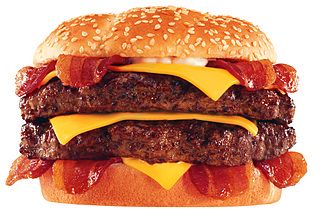Diet
Should I Eat That?
An internal debate on whether it’s worth the calories.
Posted September 10, 2014

Core to losing weight is how we resolve the internal debate: It is it worth the calories?
Here is the internal dialogue I’d have with myself as I was deciding whether to go out for an Indian buffet replete with calorie-larded delights such as chicken tikka masala, lamb curry, and gulab jamon, or stay home and have a prudent dinner, for example, salad with lo-cal dressing, broiled salmon, steamed broccoli, brown rice, and fruit for dessert.
Pro-high-cal Marty: I’ve been so good the last two days, it won’t kill me to go to the buffet.
Pro-low-cal Marty: No it won’t kill you but it won’t help you lose the 20 pounds. Instead, you’ll gain a pound or two. You don’t want to be fat—Walking around 24/7 with a 20-pound weight around you cannot be healthy. Think if yourself wheeled into an operating room because you had a heart attack from being overweight.
Pro-high-cal Marty: I don’t eat that all the time. Occasionally eating what you like is fine. It’s one of the few pleasures I allow myself.
Pro-low-cal Marty: But the net result of your “occasionally eating what you like” is that you’re 20 pounds overweight. That is damn unhealthy, especially as you get older.
Pro high-cal Marty: I’m so disciplined in everything. Do I really have to be that Calvinistic?
Pro low-cal Marty: Of course, you don’t but you’ve told yourself a million times that you can reward yourself in so many ways that won’t make you fat—like hiking with Einstein, phoning or writing a friend, or even writing another article for Psychology Today.
Pro high-cal Marty: I want all of those things—including the right to eat delicious things periodically. I hate always eating that low-cal crap.
Pro low-cal Marty: You actually like that “low-cal crap.” You’re exaggerating the extra pleasure you’d get from substituting high-calorie food.
Pro hi-cal Marty: You’re right. I need to remember that I do like that low-cal stuff I choose for myself. The problem is making myself remember that at the moment of truth: when I’m deciding what to eat.
Pro-lo-cal Marty: It’s not enough to remember it when you start eating. You have to stay conscious through the end of the meal. You often start a meal okay but by the end, even if you’re eating at home, you’ve stuffed yourself with 500 more calories.
The integrated Marty: In the end, it does come down to discipline, to remembering, “a moment on the lips, a lifetime on the hips.” To remembering that the difference in pleasure between eating steamed broccoli with garlic versus the oil-soaked chicken tikka masala is trivial compared with the health benefit of choosing the broccoli. To remembering that all the way until you’re finished eating. And that when I want to reward myself, there are many better rewards than food. But candidly, given my track record, I’d bet against my consistently enough following that advice.
Marty Nemko's bio is in Wikipedia.


